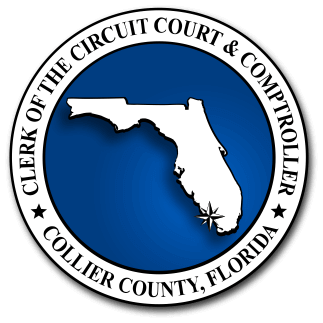As we celebrate the holidays, unfortunately we also need to be aware of possible spoilers. As residents begin planning their year-end charitable donations we urge residents to be prudent in researching not-for-profit entities. The IRS recently issued a warning for taxpayers to beware of fake charities, and they offered some tips for vetting the charities prior to donating. These sham charities can range from small Facebook or crowd-funding website, to a large enterprise, such as an alleged $10 million fraudulent charitable contribution tax scheme in Florida currently under investigation by the IRS, which recently resulted in a 34-count indictment.
The Clerk’s Office of Inspector General (OIG) advises the following steps prior to donating to a charity:

- Verify a charity’s tax-exempt status at the IRS Tax Exempt Organization Search before donating goods, services or money. You can review a charity’s filed Forms 990, to determine if their annual filings are current, and review changes from year to year. These forms detail the salaries of the top executives, the amounts paid to their largest contractors, the specifics of their revenues and spending, and the amount of funds raised that are being held in reserve for future programs.
- Donate to trusted, well-known charities.
- All charities soliciting within the state of Florida (excluding religious, educational, political and governmental agencies) are required to register and file financial information with the Florida Department of Agriculture and Consumer Services (FDACS). You can use their Check-A-Charity tool or call 1(800) HELP-FLA to check the legitimacy of a charity, or to see if there are any complaints recorded.
- Organizations such as Better Business Bureau, Charity Navigator, and GuideStar also provide information on charities.
- Ask the fundraiser for the charity’s exact name, web address and mailing address, so it can be confirmed later. Always verify a charity’s legitimacy through its official website.
- Some dishonest telemarketers use names that sound like large well-known charities to confuse people. Confirm all phone numbers for charities and check the charity’s official website to see if the number you have is legitimate. If you’re using text-to-donate, check with the charity to ensure the number is valid before donating. Individuals should never let a caller pressure them to donate quickly, as a legitimate charity will be happy to get a donation at any time.
- Fraudsters often create sham charities with names and logos similar to legitimate, well-known charities. Ignore suspicious emails requesting donations or other assistance, do not click on any links or open any attachments. Scammers regularly use email for phishing attacks and to spread malware.
- Verify information in social media posts before you give. Crowd-funding websites, such as GoFundMe, often host individual requests for help, but they are not always vetted by the site or other sources.
- Do not provide banking information to someone who calls or emails unsolicited on behalf of a charity.
- If you’re interested in donating, ask that the charity email you information and a pledge form.
- Beware if a charity asks to be paid by giving numbers from a gift card or by wiring money, as this is typically how scammers ask people to pay.
- If you’re donating online, make sure the webpage where you enter your payment information has “https” in the web address. That means your information is encrypted and transmitted securely. Encryption alone doesn’t mean the site is legit, however – scammers know how to encrypt, too.
- It’s safest to pay by credit card or check, and only after having done research on the charity.
- Residents can report potential charity scams to the Attorney General’s Office by calling 1(866)9NO-SCAM (1-866-966-7226) or by visiting MyFloridaLegal.com.
Collier County Ordinance 2012-01 provides for additional safeguards when there are public solicitations of contributions within the County, including applications and forms to be filed with the Clerk’s office. Due to the number of complaints filed with the OIG regarding not-for-profit entities and resulting prosecutions, these documents will be reviewed by the Clerk’s OIG. Those charities seeking government funding, or those conducting business with the County will be reviewed with priority.
